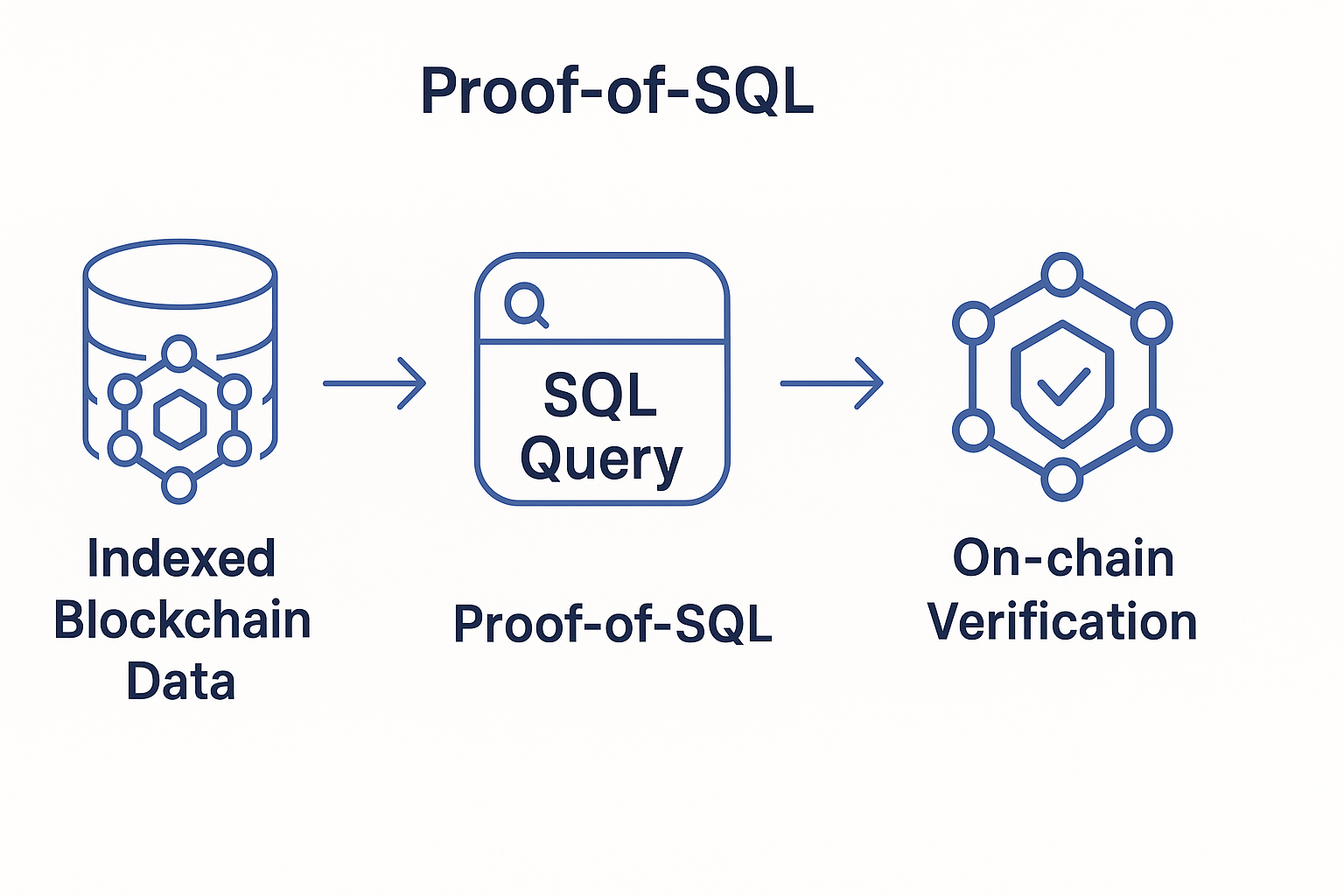Platforms and Tooling
Zero‑Knowledge Coprocessors are not theoretical concepts; they are being actively implemented by several projects seeking to combine high‑performance computation with on‑chain verifiability. This module examines the leading platforms that embody these ideas, the toolchains developers use to interact with them, and the emerging hardware acceleration efforts that are pushing performance boundaries. By understanding the available options, developers can choose the right stack for their use cases and anticipate how the ecosystem is evolving.
Space & Time: Proof‑of‑SQL

Space & Time is one of the most visible implementations of a Zero‑Knowledge Coprocessor. It focuses on enabling verifiable queries over large datasets through its proprietary Proof‑of‑SQL system. The core idea is to allow developers to run SQL queries on indexed blockchain data or external data sources and receive a zero‑knowledge proof that the query result is correct. This proof can then be submitted to a blockchain, where a lightweight verifier contract checks its validity.
The architecture of Space & Time separates data storage, query execution, and proof generation. Indexed blockchain data is stored off‑chain in a high‑performance database. Queries are executed using standard SQL, making the system accessible to developers who are familiar with relational databases rather than specialized cryptography. The results of these queries are converted into arithmetic circuits that feed into a zero‑knowledge proof system, ensuring that the returned data cannot be tampered with.
This approach has strong appeal for applications that require trustless analytics. For example, decentralized finance protocols can prove metrics such as total value locked, user balances, or historical price movements without forcing every node on the chain to recompute the data. Space & Time has also positioned itself as a bridge between enterprise data systems and blockchain, offering compliance‑friendly pathways for financial institutions exploring verifiable computation.
RISC Zero zkVM
RISC Zero is another major player advancing Zero‑Knowledge Coprocessor technology. Its zkVM is a general‑purpose zero‑knowledge virtual machine that emulates the RISC‑V instruction set. This allows developers to write programs in Rust or C++ and compile them to run within the zkVM, producing zero‑knowledge proofs of arbitrary computation.
The significance of this approach lies in its generality. Unlike domain‑specific solutions tailored to SQL or other specialized tasks, RISC Zero can prove computations across a wide variety of use cases, from cryptographic algorithms to game logic. The recent 2.0 release of the RISC Zero zkVM introduced significant performance improvements, including five‑fold reductions in proof costs and support for larger memory footprints, enabling applications that were previously impractical.
RISC Zero also offers Bonsai, a cloud‑based proving service that abstracts away the complexities of hardware management. Developers can offload proof generation to Bonsai while still maintaining cryptographic integrity, which is particularly valuable for projects with limited resources. This hybrid approach, where the proof system is open‑source but optional proving infrastructure is provided as a service, reflects the practical trade‑offs many teams face when adopting ZK technologies.
Lagrange ZK Coprocessor
Lagrange introduces a coprocessor focused on cross‑chain data proofs. It allows smart contracts on one blockchain to verify data originating from another chain without relying on traditional bridging mechanisms. The system works by generating zero‑knowledge proofs that a specific state or transaction occurred on the source chain and presenting that proof to the destination chain for verification.
This cross‑chain verification model has implications for interoperability. Instead of trusting multi‑signature bridges or centralized relays, developers can use cryptographic proofs to confirm data integrity across ecosystems. For instance, a DeFi protocol on Ethereum could use Lagrange to verify collateral balances on Solana without relying on a trusted intermediary. This reduces attack surfaces and enables new composability patterns between previously siloed blockchains.
By focusing on verifiable state synchronization, Lagrange addresses one of the most persistent challenges in multi‑chain architecture. Its design demonstrates that ZK Coprocessors can serve not only as computational accelerators but also as trust minimization layers for cross‑network communication.
Other Emerging Solutions
Beyond these flagship projects, several experimental efforts are exploring alternative approaches to ZK Coprocessing. ORA, for example, is building zkWASM, which applies zero‑knowledge proofs to WebAssembly runtimes. This allows developers to compile programs from multiple languages to WASM and run them in a verifiable environment, broadening the scope of potential applications.
App‑specific rollups are also beginning to integrate coprocessor‑like modules to handle domain‑specific tasks. In decentralized gaming, for instance, some projects use custom zkVMs to prove the fairness of off‑chain game logic. In supply chain applications, ZK Coprocessors can verify private data about shipments or inventory while exposing only necessary proofs to public chains.
These emerging platforms reflect the rapid innovation occurring at the intersection of zero‑knowledge cryptography and modular blockchain design. While not yet standardized, they highlight the diversity of approaches developers can expect in the coming years.
Hardware Acceleration
Zero‑Knowledge Coprocessors are computationally intensive, and hardware acceleration has become a key area of research. Companies such as Cysic and Polyhedra are developing specialized chips and FPGA implementations designed to speed up proof generation by orders of magnitude. These accelerators optimize operations like multi‑scalar multiplication and polynomial evaluation, which are bottlenecks in most zero‑knowledge protocols.
The availability of dedicated hardware can transform the economics of verifiable computation. With lower latency and energy consumption, real‑time applications such as gaming, high‑frequency trading, or privacy‑preserving AI inference become feasible. As more platforms integrate hardware‑assisted proving, it is likely that ZK Coprocessors will move from experimental deployments to production systems capable of supporting mass‑market applications.





